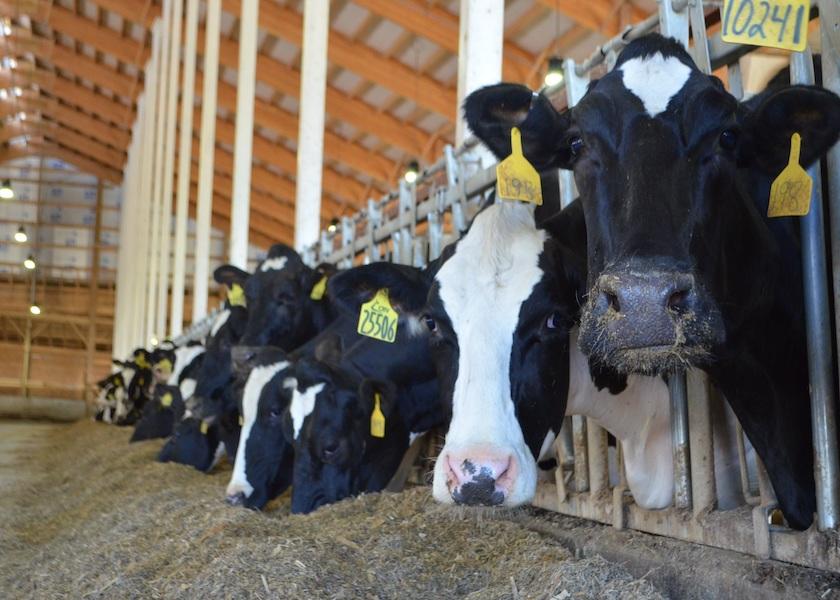Feeding Strategies to Mitigate Heat Stress

Heat stress disrupts a wide range of functions in cows, from eating and digestion, to milk production and reproduction. Fortunately, there also are a number of ways to support cows through stretches of heat stress, including nutritionally.
Dutch animal nutrition site All About Feed shares these considerations to help cows navigate heat stress with nutritional adjustments:
- Concentrate-to-roughage ratio – Feed intake suppression due to heat stress may be countered in part by increasing metabolizable energy (ME) and nutrient densities of rations. The ME requirement for maintenance goes up 10-30% at 85-105°F compared to 65-70°F because extra energy is needed for heat dissipation.
- Protein fraction. -- Feeding protein-deficient diets produces an increased heat load on cows due to increased heat production from metabolization of tissue proteins. Supplemental protein can help mitigate heat stress, and research has shown it also can increase dry-matter intake (DMI) during heat stress.
- Protected fat -- Because bypass fats do not affect rumen fermentation, they are a wise choice to make up a greater percentage of the total fat in the ration during hot weather.
- Mineral supplements -- There is a five-fold increase in loss of potassium due to sweating when cows are heat stressed. Concentrates also are typically potassium-deficient, so as they are bumped up, potassium supplementation is necessary. Sodium supplementation also is advised because cows excrete more sodium via urine when they are heat stressed.
- Vitamin supplements – Niacin (vitamin B3) has been shown to boost vasodilation and lipid metabolism in mammals. Including niacin at 6g/cow/day is advised to reduce skin temperature and boost milk yield. Supplemental vitamin C also may be advisable because heat stress depletes vitamin C levels in plasma and tissue.
- Buffers – Boosting ration concentrates calls for the rumen-calming support of buffers, at a suggested level of about a third pound of buffer (in this example, sodium bicarbonate) to 45 pounds DMI.
- Feeding frequency – Increasing feeding frequency in hot weather has been shown to reduce heat production and equalize nutrient absorption by spreading the total heat increment due to feeding and digestion over a longer period. It also can help keep rumen fermentation more consistent, aiding in the digestion of higher concentrates without decreasing rumen pH or the acetate-to-propionate ratio.
- Feeding time – Peak heat production due to digestive events occurs about three hours after cows eat. So, feeding earlier in the morning and later in the evening than normal can ensure cows hit these peaks during cooler parts of the day.
- Water -- Cool, clean, accessible, free-choice water is imperative to help cows manage heat stress. One study showed that cows lose 59% more water via skin, and 50% via respiration, when ambient temperature increased from about 65°F to 85°F.







